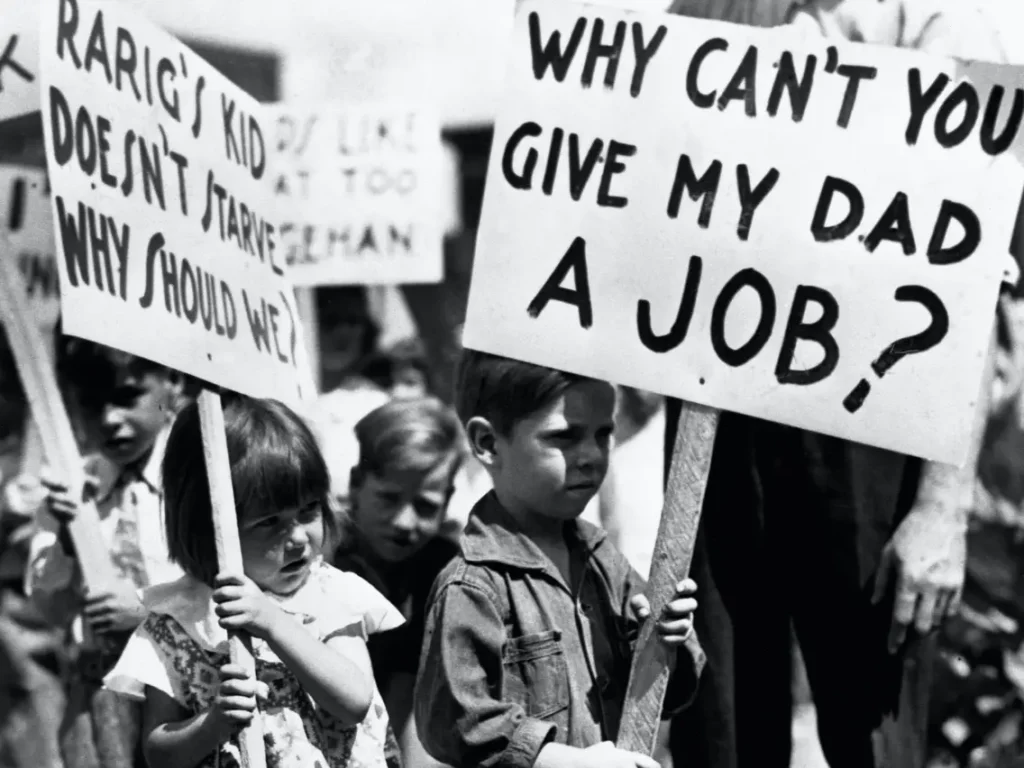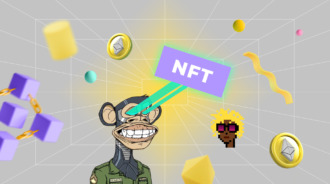

The Great Depression is a period in history that holds valuable lessons, despite being a time no one wishes to revisit. By gaining a profound understanding of this challenging era, we can prevent a recurrence of a similar economic catastrophe in our time. Let’s delve into the details.

What is the Great Depression?
The Great Depression was a global economic downturn that began in the United States in the 20th century. It originated on Black Thursday, when panicked investors sold a record-breaking 13 million shares.
When did the Great Depression start?
The Great Depression commenced in October 1929 with the crash of the stock market. Multiple factors contributed to its onset, including excessive speculation in the stock market, reduced consumer spending, and increased business debt.
How long did the Great Depression last?
The Great Depression lasted nearly a decade, spanning approximately ten years.

What happened during the Great Depression?
The Great Depression brought immense economic hardship to the United States. Unemployment rates skyrocketed, reaching as high as 25%. Numerous businesses collapsed, leading to even more job losses.
The severe economic decline had several detrimental effects on the American economy. One of the most significant consequences was a decrease in production, which resulted in a decline in living standards for many Americans and directly impacted employment rates.
This stagnant period also had profound effects on American society. Crime rates increased amidst widespread unemployment, and many individuals lost their homes due to the inability to pay mortgages.
What was life like during the Great Depression?
Life during the Great Depression was characterized by severe economic hardship. Poverty became widespread, savings vanished, and supporting oneself became exceedingly difficult. Families struggled to make ends meet, and most individuals lost their jobs and were unable to meet their financial obligations.
The Great Depression affected nearly every aspect of life, from how people lived and worked to how they perceived themselves and the world around them. These years were incredibly challenging for many families.
What caused the Great Depression?
The primary cause of the Great Depression was the stock market crash of 1929. This event marked the beginning of the economic downturn and triggered a chain reaction, leading to bank failures, job losses, and plummeting prices.
However, other factors also played a role in the occurrence of the Great Depression.
The gold standard
Before the Great Depression, most countries operated under the gold standard, where each currency was backed by a specific amount of gold and could be exchanged for gold at a fixed rate. This system exerted pressure on countries to maintain low inflation levels. Governments were less able to respond to economic shocks and instead resorted to austerity measures, exacerbating the situation.
The Smoot-Hawley tariff
In 1930, the US Congress passed the Smoot-Hawley tariff, which increased tariffs on imported goods. This action led to a decline in global trade as other countries retaliated against the US.
Lack of consumer confidence
The decline in purchasing power due to high unemployment, falling wages, and fear of deflation (falling prices) contributed to the Great Depression. Consumers became more conservative in their spending habits.
Banking problems
The failure of numerous banks worsened the Great Depression. This failure was partly a result of the stock market crash but also due to the unregulated nature of the banking system. Risky loans and heavy investments in the stock market caused significant losses for many banks, eroding confidence in the banking system and leading to mass withdrawals of funds.
Austerity measures
Many countries adhered to the gold standard and implemented austerity measures (spending cuts) to balance their budgets. This led to a decline in aggregate demand and further exacerbated the Great Depression.
The Federal Reserve
The actions of the US Federal Reserve were also blamed for the Great Depression. In the years leading up to the economic downturn, the Fed kept interest rates low, creating a stock market bubble. When the crash occurred, the Fed could have responded by cutting interest rates and increasing the money supply to prevent deflation. However, they raised interest rates and reduced the money supply, exacerbating the situation.
What caused the end of the Great Depression?
Several factors are often cited as contributing to the end of the Great Depression:
- The United States’ entry into World War II in 1941 led to increased government spending and reduced unemployment as individuals were recruited for the war effort.
- The development of new technologies and industries played a role in ending the Great Depression. For example, the rise of the automobile industry created new jobs and stimulated the economy.
- The implementation of New Deal policies by President Franklin Roosevelt also aided in ending the Great Depression. These policies included the establishment of Social Security, which provided a safety net for Americans during challenging times.
- The end of the great drought of the 1930s in 1940 provided relief for struggling farmers and agricultural workers affected by the depression.
- The cessation of the great stock market crash of 1929 allowed people to regain confidence and reinvest, contributing to the improvement of the economy.
Although it is impossible to attribute the end of the Great Depression to a single factor, a combination of various elements played a crucial role in restoring economic growth and prosperity.
Why the Great Depression is unlikely to happen again
Today, there are several safeguards in place that would make it significantly challenging for a similar economic decline to occur. Firstly, the Federal Reserve has implemented policies specifically designed to prevent the conditions that led to the Great Depression from recurring. Additionally, the banking system is now much more tightly regulated than it was during the early 20th century.
Unlike during the Great Depression, we now have various social safety nets in place that would help mitigate the impact of an economic downturn. Programs like unemployment insurance and food stamps provide vital support to individuals who have lost their jobs or experienced a decline in income.
Furthermore, it is important to note that the global economy is now highly interconnected compared to the time of the Great Depression. This interconnectedness makes it less likely for any country to experience an economic decline on the same scale as the United States did in the 1930s.
While it cannot be definitively stated that another Great Depression will never happen, it seems improbable that the same conditions which led to the original event would be replicated in the present day. It is not to say that there could never be another economic disaster, but rather that it is unlikely to reach the same depths as the Great Depression.
Frequently Asked Questions (FAQs)
Let’s explore some common queries about the Great Depression.
When did the Great Depression end?
The Great Depression was the most severe and prolonged economic downturn in the history of Western industrialized nations. It lasted for over a decade, from 1929 to 1941. The Great Depression came to an end in the early 1940s.
How did the Great Depression impact the population?
The Great Depression was a time of immense hardship, with many individuals losing their lives due to a lack of food, resources, and support. People struggled to cope with the overwhelming stress and pressure brought on by the Great Depression.
Conclusion
Undoubtedly, the Great Depression stands as one of the darkest events in industrial history. It is crucial that we learn from the mistakes that triggered this depression and strive to improve society as a whole, making the world a better place for everyone.










